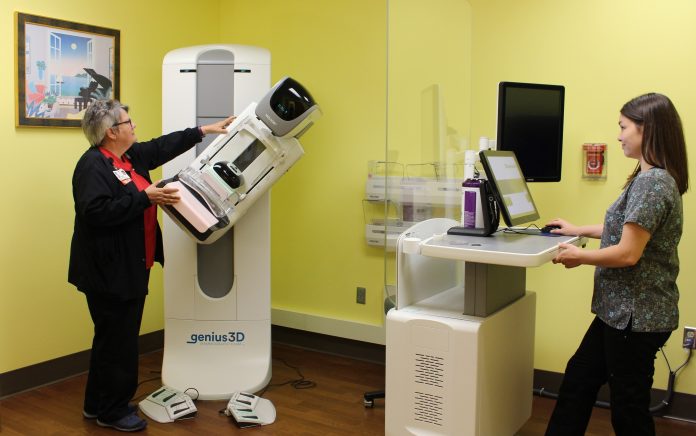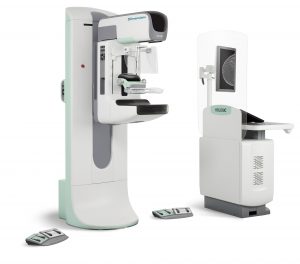
The COVID-19 pandemic has led many people to delay common, annual preventative health screenings, either out of necessity or fear. But with case numbers dropping and vaccination numbers rising, now is the time to get back on track and schedule any overdue exams through your medical provider. For women over the age of 40, an annual mammogram is near the top of the to-do list.

Rod Dalseg, director of professional services at PeaceHealth United General Medical Center in Sedro-Woolley, says mammography screenings came to a complete stop in March and April 2020. Since their resumption last summer, mammogram appointments are still down about 15-20% compared to pre-pandemic numbers.
Dalseg says plenty of appointments are available right now, and most patients can get in for a mammogram in just a couple of days. And even with more positive vaccination news regarding vaccinations and mask-wearing, PeaceHealth continues to exhibit careful protocols to prevent the spread of COVID-19.
All patients are screened upon entering the hospital, and masks are still required for both caregivers (employees) and patients, even if they have been fully vaccinated. “It’s safe to come to the hospital,” Dalseg says. “We sanitize the complete breast suite to make sure that it’s all clean and ready for the next person. We take all of those things very seriously. Our staff is vaccinated. We’re taking all of these steps to make sure everyone is safe.”
Early Detection is Key

Dr. Asra Khan, radiologist with Northwest Radiologists, Inc., and medical director for PeaceHealth United General’s Diagnostic Imaging, specializes in diagnostic radiology and body MRI scans. She says that a woman has a one in eight chance of developing breast cancer in her lifetime. The disease is also among the leading causes of cancer death for women, which is why the American College of Radiology recommends all women schedule annual mammograms beginning at age 40.
“At age 40, there’s a sharp increase in breast cancer incidents,” Khan says. “If we can catch those cancers in women in their 40s, the number of years of life that they gain from finding those cancers is quite high.”
Finding breast cancer early means less invasive and intense treatments, and overall better survival rates long-term, Khan adds.
At PeaceHealth United General, digital breast tomography takes high quality, 3D images of the breast, allowing for greater accuracy in finding areas of concern. Compared to conventional 2D digital breast mammography, 3D imaging increases the cancer detection rates and decreases the need to call back for additional imaging. This kind of imaging is especially helpful for women with denser breast tissue.
Whether traditional or 3D imaging is used, the procedure for the patient is the same. A patient’s breast tissue is compressed and quickly imaged; Khan says that most women tolerate the minor discomfort of the procedure very well.

Results are typically available to the patient and their referring physician within two to three days, Khan says. If results are abnormal, an ultrasound and additional mammography imaging may be used to obtain better views of the initial mammogram findings.
In the age of COVID-19, the only other thing to consider before making a mammogram appointment is your vaccination status. If you’ve recently had, or about to get, the COVID-19 vaccine, you should know that the body’s immune response can slightly enlarge lymph nodes.
If a mammogram is scheduled within four to six weeks of your final COVID-19 shot, Khan says these lymph node changes may appear in mammography results as slightly enlarged. This, in turn, may necessitate a follow-up ultrasound to confirm a return of the lymph nodes to normal size.
Because of this, Dalseg says that the Society of Breast Imagining suggests getting your mammogram either before your first shot or four to six weeks after your second. However, both Dalseg and Khan are quick to add that the importance of a mammogram outweighs any concern over how the vaccine could potentially influence the results. Also, if there is an urgent clinical symptom such as finding a new breast lump, diagnostic mammogram should not be delayed, regardless of vaccination status.
And like many preventative medical check-ups in age of the pandemic, a mammogram is something you shouldn’t put off any longer. “Schedule your mammogram,” Khan says. “We don’t want to put any barriers in place to getting mammography done.”
For more information or to schedule your appointment, visit the PeaceHealth United General Medical Center website, or call 360-788-6345.
Sponsored



































